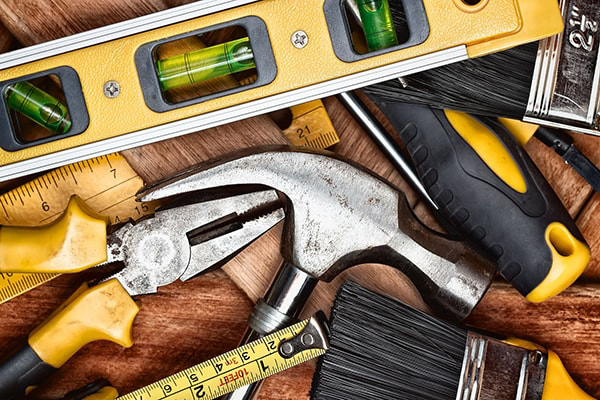To get a home inspection or not is, indeed, the question. Use these tips on selecting a home inspector and the different types of inspections you to consider.
o get a home inspection, or not, is the question to ask yourself when you are purchasing a home. Speaking as someone who’s recently gone through the home buying process, I would highly recommend a home inspection. I think they are a good, and necessary, investment. For me, ensuring that my new major investment was something that wouldn’t end up costing significantly me later, was a top priority. I mean, no one wants to purchase a house only for it to turn into a money pit.
According to the American Home Inspectors Institute, a home inspection is “an all-encompassing examination of the condition of a home.” There are several types of home inspections available, but the two most common are a general or residential inspection—the one you get to inspect the overall condition of the home you are interested in purchasing— and a wood destroying pest inspection—one that looks for termites or other organisms that could possibly cause any damage to your property.
Now, not all home inspections are created equal, nor do all inspectors examine the same systems with the same amount of depth and detail. If you are in the market for a home inspection and don’t know where to start, you have a few options. You can either do an internet search, ask your realtor, or ask friends/family who’ve recently bought or sold a house, for referrals for licensed providers.
Once you have a list of viable inspectors, I recommend a thorough interview with them to ensure that you have full confidence in their skill set and inspection quality.
Here are a few of the questions I asked my inspector before hiring him:
1. Are you licensed?
2. How long have you been in this industry?
3. What does your specific experience detail? (You will want someone familiar with the type of property you are buying—be it old or new, has special features, or exotic/unusual materials.)
4. What exactly will you inspect? (ensure all items and systems you are concerned with are covered)
5. Can I be present when you conduct the inspection?
6. Do you offer a full, detailed written report of your write up and what will it include?
7. How long before you deliver your report to me?
You can also ask your realtor, family/friends, or search the internet for any additional suggestions for picking the right inspector for your home. Another good source of information is AmeriSpec. AmeriSpec is a national home inspection company that’s been around since 1987. They are a member of the ServiceMaster family and have franchises located throughout the US and Canada. They have a plethora of resources on their webpage, everything from tips on preparing for inspections plus tips for both buyers and sellers.
One of their more useful tools I found was an interactive model showing eighty three (83) components of a home inspection. This model contains everything from items I would have never known to inspect, such as soil and gravel, to the major items such as the foundation and roof. To the average person, this could be an overwhelming venture. In fact, for me it was. But taking a little time to familize yourself with the process andd your potential home inspector will go a long way in giving you additional comfort and peace of mind.
That being said, home inspections are not just for individuals looking to buy or sell their home. If you are a current home owner, it is good practice to set up and adhere to a seasonal maintenance schedule. This will ensure your home stays in good shape and condition. A quick internet search will bring a surplus of advice and suggestions.
I also found a great list of household systems and cleaning tips on the Art of Manliness website. I find this list to be a bit more user friendly and less intimidating, and its organized both by monthly increments and seasonality.
Personally, there are four main things I consistently do:
1. Change out HVAC filters monthly
2. Clean/refresh garbage disposals monthly (I drop in lemon peels to clean and ice cubes to sharpen the blades)
3. Quarterly deep clean: Once a quarter I do a deep clean of my entire house to remove dust and grime build up on appliances, vent covers, and any hidden nooks and crannies. This goes a long way in preventing build up that could affect the energy efficiency of your appliances and major systems.
4. Inspect ceilings and walls once a month for any cracks or nail pops.
All rights reserved to the initial publisher for American Home Shield
Collected and published by Arms &McGregor International Realty® editorial team. Get in touched with us at [email protected]

